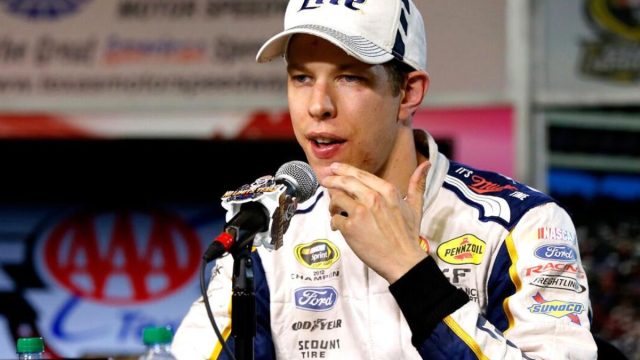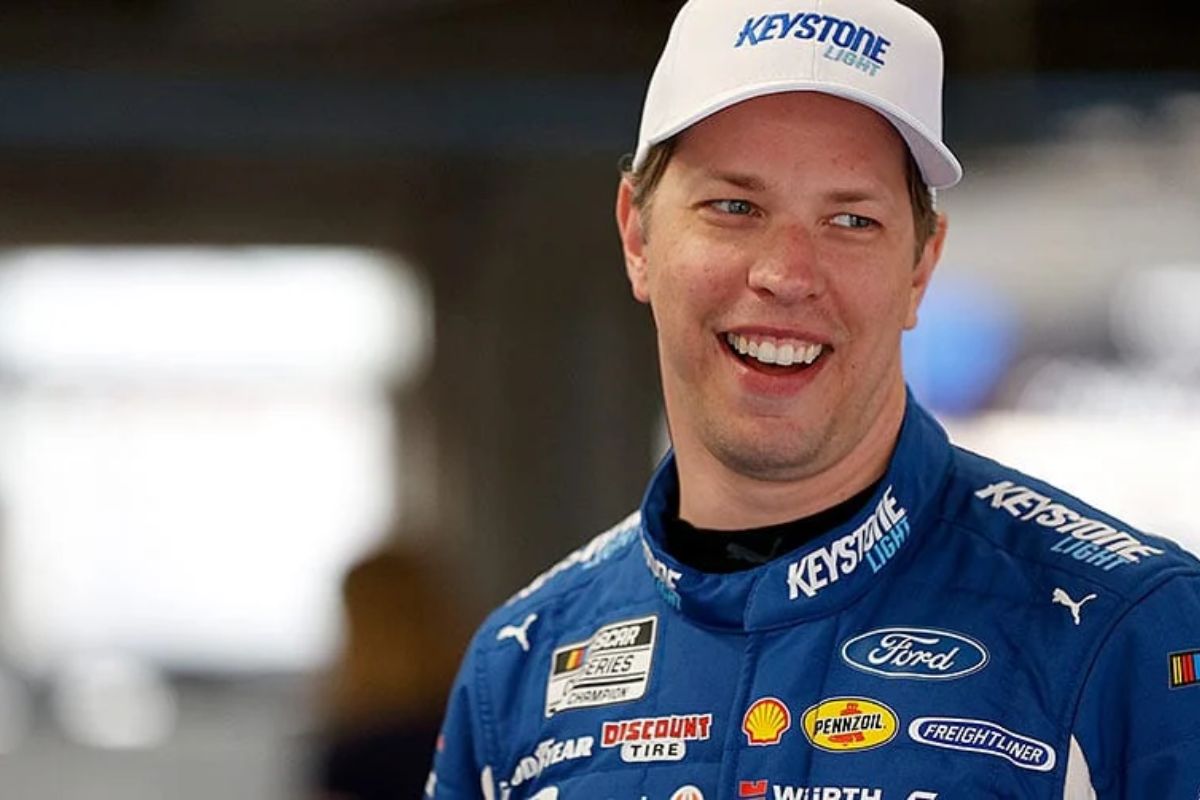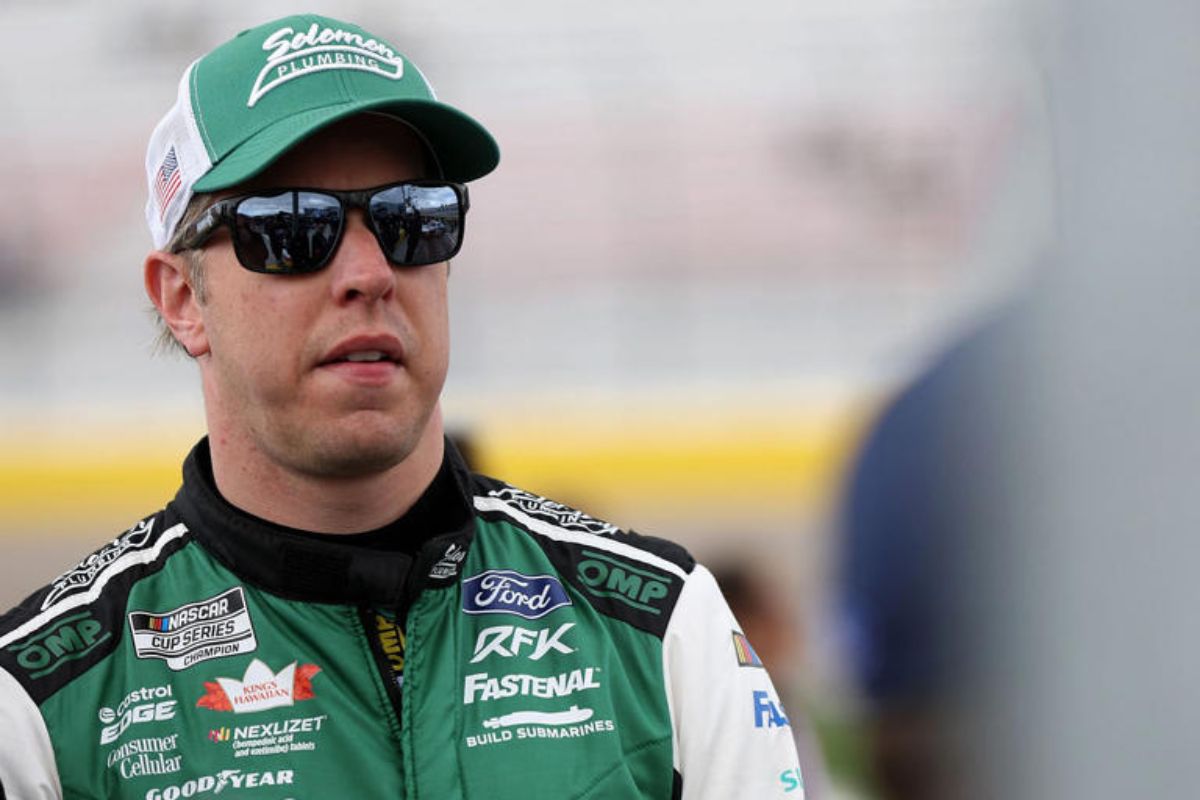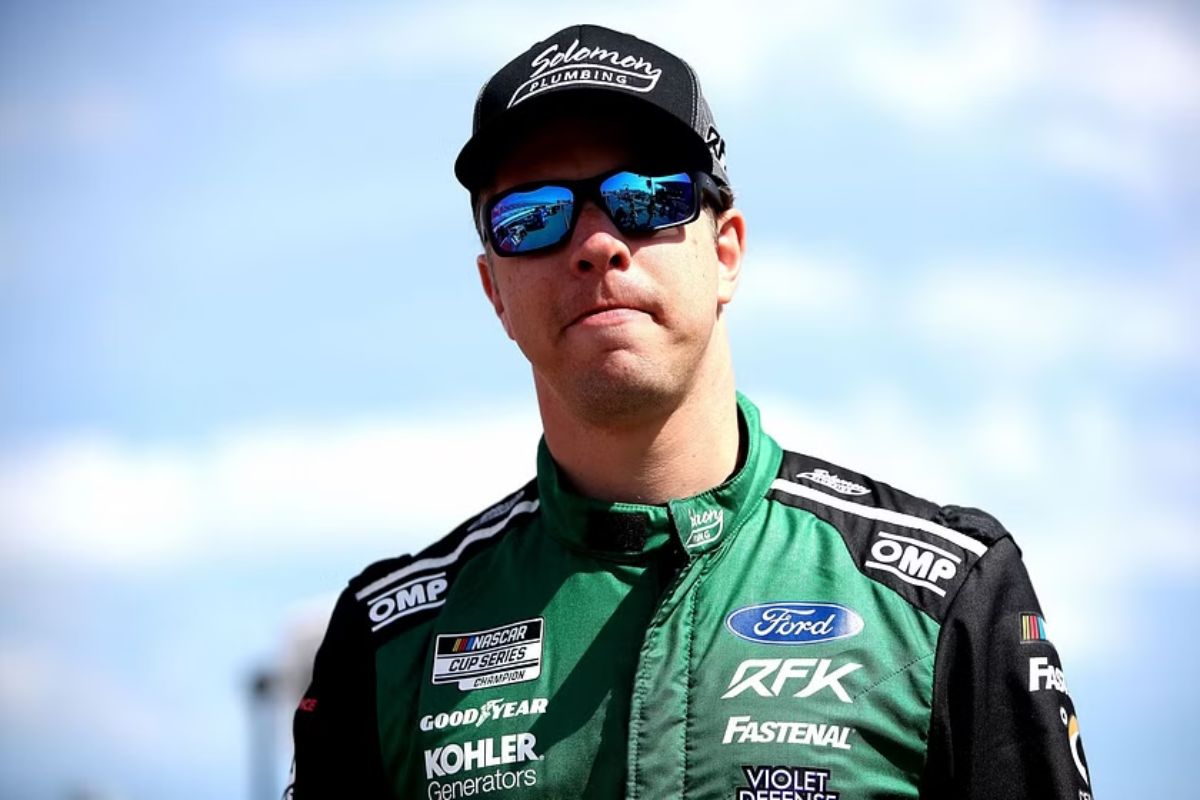Brad Keselowski Defends NASCAR: In his recent defense of NASCAR, Brad Keselowski not only praised the current state of racing but also highlighted the sophistication inherent in the evolving strategies, particularly fuel conservation, which he argues greatly enhances the sport’s competitive nature. Keselowski’s endorsement comes amid a backdrop of varied opinions from other drivers, some of whom express reservations about the direction NASCAR is taking with its tactical innovations.
Key Takeaways
- Keselowski praised the strategic depth added by fuel-saving tactics in NASCAR races.
- Keselowski highlighted his own success at Talladega as evidence of effective strategy.
- Keselowski argued that fuel management enhances the overall racing experience.
- The shift towards fuel efficiency challenges drivers to adapt and evolve.
Brad Keselowski’s Positive Take on Fuel Saving Strategy
In discussing NASCAR’s fuel-saving strategies, Brad Keselowski co-owner of RFK Racing, emphasized their strategic importance and effectiveness, highlighted by his runner-up finish at the recent Talladega race. Keselowski’s perspective reveals a deep understanding of the tactical intricacies that define modern racing. Throughout the event, he observed a consistent application of fuel conservation tactics.
“Start of the race there was a lot of fuel conserve, in the middle race there was fuel conserve, at the end there was no fuel conserve. We ran hard.”
“ I thought there was good racing. There was all kinds of racing today. We saw it single out to the wall, we saw double, triple… We saw different strategies on pit road. It was a really interesting race”-Keselowski
Keselowski declines the race’s phases, noting that the beginning and middle segments saw significant fuel-saving efforts, while the final laps escalated into a full-throttle chase to the finish. This strategic ebb and flow, he suggests, adds complexity and intrigue to the race, challenging drivers and teams to balance aggression with restraint. The ability to effectively manage fuel consumption without compromising competitive positioning is a skill that, according to Keselowski, enriches the spectacle rather than detracts from it.
His defense of fuel-saving strategies highlights a broader philosophy within NASCAR racing: the integration of strategy with raw driving skill. Keselowski’s analysis positions fuel management as an integral component of racecraft, one that requires planning, precise execution, and real-time decision-making. Contrary to critics who may view fuel conservation as merely a limiting factor, Keselowski frames it as an opportunity for teams to demonstrate their adeptness in adapting to variable race conditions and optimizing performance under challenging circumstances.
Talks around Fuel-Conservation Strategy
Discussions about NASCAR’s fuel-conservation strategies intensified after the initial two stages of Sunday’s race at Talladega unfolded without a single caution, showcasing a markedly different approach to speed management. This novel strategy, while contributing to a more monotonous spectator experience, highlights a tactical evolution in racing philosophy.
With drivers like Erik Jones managing to overtake numerous competitors by simply utilizing a fraction of available throttle, the spectacle of speed gives way to a chess-like battle of efficiency and endurance.
The absence of cautions, typically serving as natural intervals for refueling and tactical regrouping, thrusts fuel management into the spotlight. This scenario compels teams to optimize their fuel usage attentively to maintain competitiveness while also guarding against the risk of running dry. The 2.66-mile expanse of Talladega tri-oval track, known for its high speeds and significant challenges, transforms into a proving ground for engineering ingenuity and strategic foresight.
Teams are now tasked with developing more advanced fuel management systems and training drivers to harness these technologies effectively without compromising their competitive edge. This shift not only challenges the traditional paradigms of racing—where maximal speed and over aggression are prized—but also integrates strategic depth that could define future racing formats.
Drivers’ Reactions to Fuel-Saving Strategy
Amidst the changing dynamics of NASCAR’s fuel-conservation strategies, drivers’ reactions have ranged from initial skepticism to a more sophisticated acceptance of the tactical demands imposed by these methods. Initially, prominent drivers like Kyle Busch and Chris Buescher vocalized their disdain following the Daytona race earlier this year. Busch described feeling ‘disgraceful’ for having to adopt such tactics, while Buescher remarked that it was ‘the least amount of fun’ he had ever had in a Daytona 500.
However, perspectives among the drivers have significantly shifted as the season progressed. By the time of the most recent race, there was a noticeable change in the paddock’s atmosphere. Defending champion Ryan Blaney provided insight into this transformation in his comments to NBC Sports. He acknowledged that the initial resistance had largely given way to an understanding and strategic engagement with fuel conservation.
“I think now everyone has gotten used to (fuel saving) and I think people have figured out how to counter it, so you might see an interesting deal there.”-Ryan Blaney
NASCAR’s Response and Future Considerations
NASCAR officials are currently evaluating the impact of fuel-saving strategies and considering potential rule changes to increase the excitement and competitiveness of races. This ongoing assessment highlights NASCAR’s dedication to maintaining a thrilling spectator experience while ensuring fair play among competitors. The possibility of rule modifications comes as a direct response to recent race strategies that have emphasized conservation over outright speed, sparking a mix of commendation and criticism from the racing community.
The introduction of new rules could reshape strategies deployed by teams, potentially leading to more dynamic and engaging races. However, any changes will be carefully weighed to avoid unintended consequences that could detract from the sport’s integrity.
| Consideration | Potential Impact | Current Status |
|---|---|---|
| Limit on Fuel Capacity | Encourages more pit stops | Under Review |
| Adjustment to Fuel Window | Modifies race strategy | Proposal Stage |
| Enhanced Engine Regulations | Increases performance variability | Discussion Ongoing |
News in Brief: Brad Keselowski Defends NASCAR
Brad Keselowski’s endorsement of NASCAR’s current strategies, particularly fuel-saving tactics, highlights a significant evolution in the sport’s competitive dynamics. This approach not only tests the strategic expertise of drivers but also aligns with broader trends towards efficiency and sustainability in motorsports. As the sport continues to adapt and innovate, such strategies will likely play a crucial role in shaping the future landscape of NASCAR racing, maintaining its appeal and relevance in the evolving world of competitive sports.
Our Reader’s Queries
Q. What happened to Brad Keselowski racing?
A. Established in 2007, the team was under the ownership and management of NASCAR Cup Series and Xfinity Series champion Brad Keselowski. Fielding the Nos. 19 and 29 Ford F-150s for drivers Austin Cindric and Chase Briscoe, respectively, it showcased competitive talent on the track. However, on August 17, 2017, BKR made the decision to suspend operations following the conclusion of the 2017 season.
Q. How many times has Brad Keselowski won Daytona?
A. Both Busch and Keselowski have tasted victory in summer Daytona races: Busch in 2008 and Keselowski in 2016. It’s evident that the track itself isn’t the sole determinant of success. Despite the difference in race length, with one spanning 500 laps and the other 400, the two Daytona races remain statistically comparable in the era of stage racing.
Q. How many NASCAR races has Brad Keselowski won?
A. Keselowski secured the coveted 2012 Cup championship title, cementing his place among NASCAR’s elite. With an impressive tally of 35 career victories in the premier series, his triumphs include prestigious wins at iconic events such as the Coca-Cola 600, Brickyard 400, and Southern 500, solidifying his status as a formidable force on the track.
Q. Who sponsors Brad Keselowski?
A. RFK Racing revealed on Thursday that King’s Hawaiian will sponsor Brad Keselowski in nine NASCAR Cup Series races throughout the 2024 season. This announcement extends their partnership for the third consecutive season, maintaining King’s Hawaiian’s prominent presence on the No. 6 Ford.
ALSO READ: Brad Keselowski Seeks Redemption: Can He Break Winless Streak at Martinsville?




